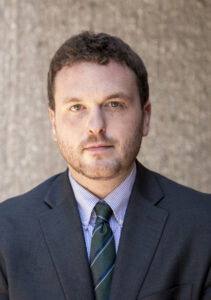This website uses cookies
We use cookies to ensure that we give you the best experience on our website. If you continue to use this site we will assume that you are happy with it.
Erik Hovenkamp, a leading antitrust and intellectual property scholar, will be joining the Cornell Law faculty as a professor of law this summer.
 Hovenkamp, who holds a Ph.D. in Economics and a J.D. from Northwestern University, has been widely recognized for his groundbreaking work at the intersection of law and economics. Since 2019, he has served as an associate professor at USC Gould School of Law, where he began his tenure as an assistant professor. His academic journey also included roles as a Qualcomm Postdoctoral Fellow in Private Law and Intellectual Property at Harvard Law School, a visiting fellow at Yale Law School, and a visiting lecturer at Boston University School of Law.
Hovenkamp, who holds a Ph.D. in Economics and a J.D. from Northwestern University, has been widely recognized for his groundbreaking work at the intersection of law and economics. Since 2019, he has served as an associate professor at USC Gould School of Law, where he began his tenure as an assistant professor. His academic journey also included roles as a Qualcomm Postdoctoral Fellow in Private Law and Intellectual Property at Harvard Law School, a visiting fellow at Yale Law School, and a visiting lecturer at Boston University School of Law.
“Erik has quickly established himself as his generation’s leading voice on all matters antitrust,” said Jens David Ohlin, Allan R. Tessler Dean and Professor of Law. “In today’s complex world, I couldn’t imagine finding a better scholar working at the intersection of antitrust, intellectual property, and economic analysis.”
The scholarly community has widely recognized Hovenkamp’s contributions to legal academia. His work has been published in a range of leading law reviews and economics journals, including the Yale Law Journal, the Journal of Legal Studies, the Journal of Industrial Economics, and the University of Chicago Law Review, among many others.
He is the recipient of the American Antitrust Institute’s Jerry S. Cohen Award for his article “Antitrust Law and Patent Settlement Design,” published in the Harvard Journal of Law and Technology. His paper “Antitrust Limits on Patent Settlements: A New Approach” (published in the Journal of Industrial Economics) earned him the Concurrences’ Antitrust Writing Awards in 2022. Hovenkamp has also made his mark as an exceptional educator, winning the Rutter Distinguished Teaching Award in 2023.
“I am thrilled to be joining such an impressive and diverse group of scholars,” said Hovenkamp.